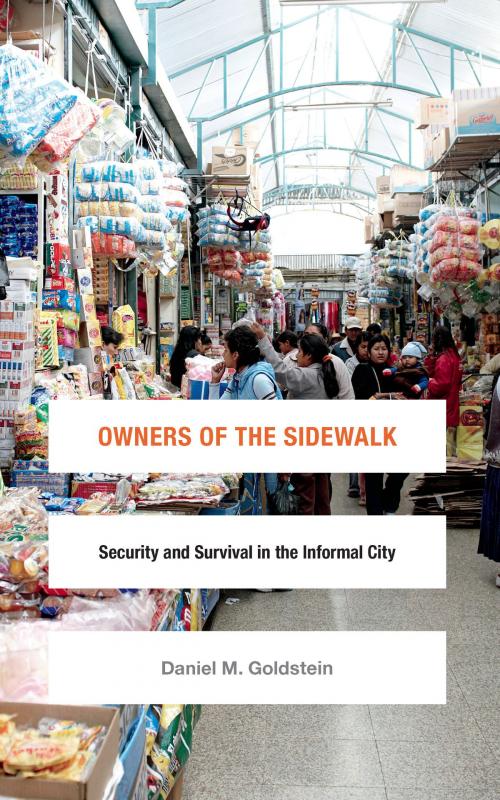Owners of the Sidewalk
Security and Survival in the Informal City
Nonfiction, History, Americas, South America, Social & Cultural Studies, Social Science, Sociology, Urban, Anthropology| Author: | Daniel M. Goldstein | ISBN: | 9780822374718 |
| Publisher: | Duke University Press | Publication: | January 22, 2016 |
| Imprint: | Duke University Press Books | Language: | English |
| Author: | Daniel M. Goldstein |
| ISBN: | 9780822374718 |
| Publisher: | Duke University Press |
| Publication: | January 22, 2016 |
| Imprint: | Duke University Press Books |
| Language: | English |
Many of Bolivia's poorest and most vulnerable citizens work as vendors in the Cancha mega-market in the city of Cochabamba, where they must navigate systems of informality and illegality in order to survive. In Owners of the Sidewalk Daniel M. Goldstein examines the ways these systems correlate in the marginal spaces of the Latin American city. Collaborating with the Cancha's legal and permanent stall vendors (fijos) and its illegal and itinerant street and sidewalk vendors (ambulantes), Goldstein shows how the state's deliberate neglect and criminalization of the Cancha's poor—a practice common to neoliberal modern cities—makes the poor exploitable, governable, and consigns them to an insecure existence. Goldstein's collaborative and engaged approach to ethnographic field research also opens up critical questions about what ethical scholarship entails.
Many of Bolivia's poorest and most vulnerable citizens work as vendors in the Cancha mega-market in the city of Cochabamba, where they must navigate systems of informality and illegality in order to survive. In Owners of the Sidewalk Daniel M. Goldstein examines the ways these systems correlate in the marginal spaces of the Latin American city. Collaborating with the Cancha's legal and permanent stall vendors (fijos) and its illegal and itinerant street and sidewalk vendors (ambulantes), Goldstein shows how the state's deliberate neglect and criminalization of the Cancha's poor—a practice common to neoliberal modern cities—makes the poor exploitable, governable, and consigns them to an insecure existence. Goldstein's collaborative and engaged approach to ethnographic field research also opens up critical questions about what ethical scholarship entails.















